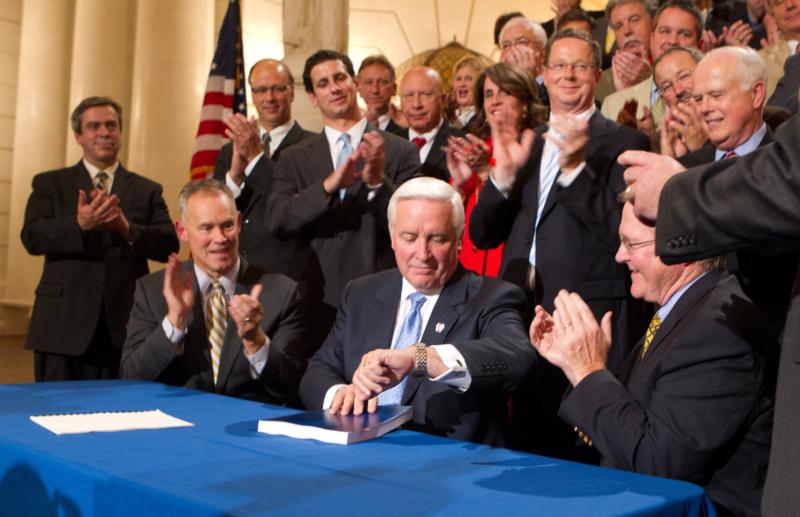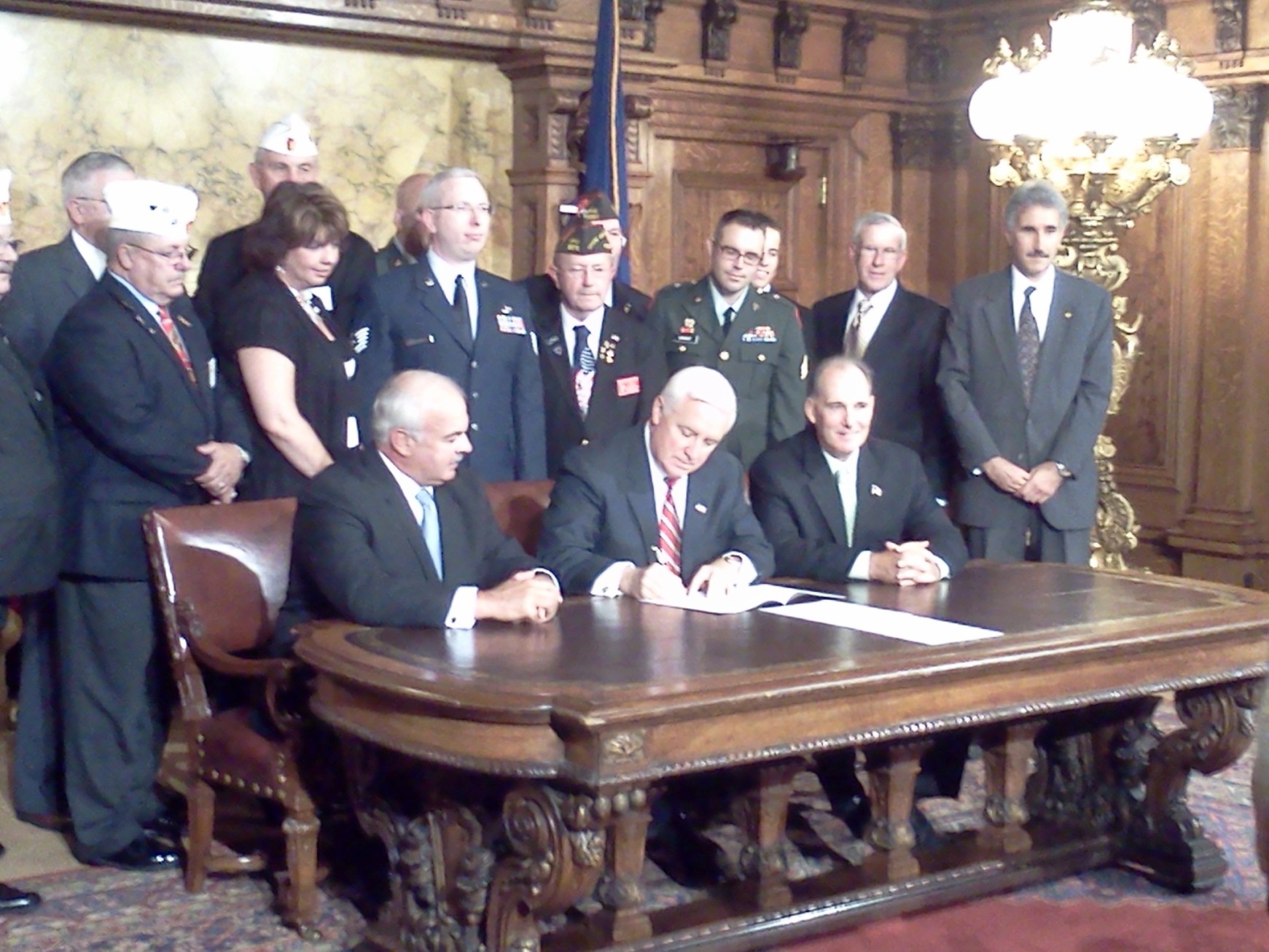PA Budget Signing Beats Midnight Deadline
The $27.15-billion dollar, no-tax increase budget trims state spending by more than a billion dollars. It passed the legislature with zero Democratic support Wednesday night, but Governor Tom Corbett waited until all of the supporting bills were in place before finally putting pen to paper late Thursday night.
The administration reports that 66-line items were eliminated, 226-line items were reduced, and 52-line items were consolidated. Basic education funding will receive $5.35-billion dollars in the new fiscal year. That’s down from a total of $5.77-billion dollars last year (a number which included federal stimulus dollars). The State System of Higher Education is already responding to 18% funding cuts. Its board of governors approved a 7.5% tuition hike on Thursday. Similarly, the state related universities (PSU, Pitt, Temple and Lincoln) face 19% reductions in state support.
Governor Corbett calls the lean spending plan an important first step in putting PA’s fiscal house back in order. “It spends no more than we have and it doesn’t pretend that we have more that we haven’t budgeted,” Corbett said referring to Democrats’ calls to use last year’s unexpected revenues to mitigate cuts to education and welfare programs.
At Thursday night’s bill signing, Governor Corbett said the budget was crafted to grow PA’s economy: “Make no mistake here. This is a budget for Pennsylvania families, for Pennsylvania working families. It is a budget that imposes no new taxes on them.”
Governor Corbett also hailed legislative passage of a new bill to limit Act 1 exceptions – thus requiring a voter referendum if a PA school district seeks to raise property taxes above the rate of inflation. While it was technically an unrelated bill, it represents a Corbett priority and the final piece of the budget package. “I believe we need to give the citizens of Pennsylvania, in the school districts, the ability to voice their opinion in more than just the election of school board directors,” Corbett tells reporters.
However, the Pennsylvania School Boards Association is concerned that this will result in additional reductions in educational programming. They know that voter referenda on property taxes are extremely difficult to approve. “The problem is, less than 25% of the population has children in schools, so there’s 75% of the population that the districts need to reach that they don’t necessarily reach on a routine basis,” says PSBA director of research Dave Davare. “Districts are not willy-nilly raising taxes,” Davare tells us.
With this year’s budget work behind them, the State House and Senate have each recessed until September. This marked the first time in nine years that PA’s state budget was signed by the constitutional deadline.








